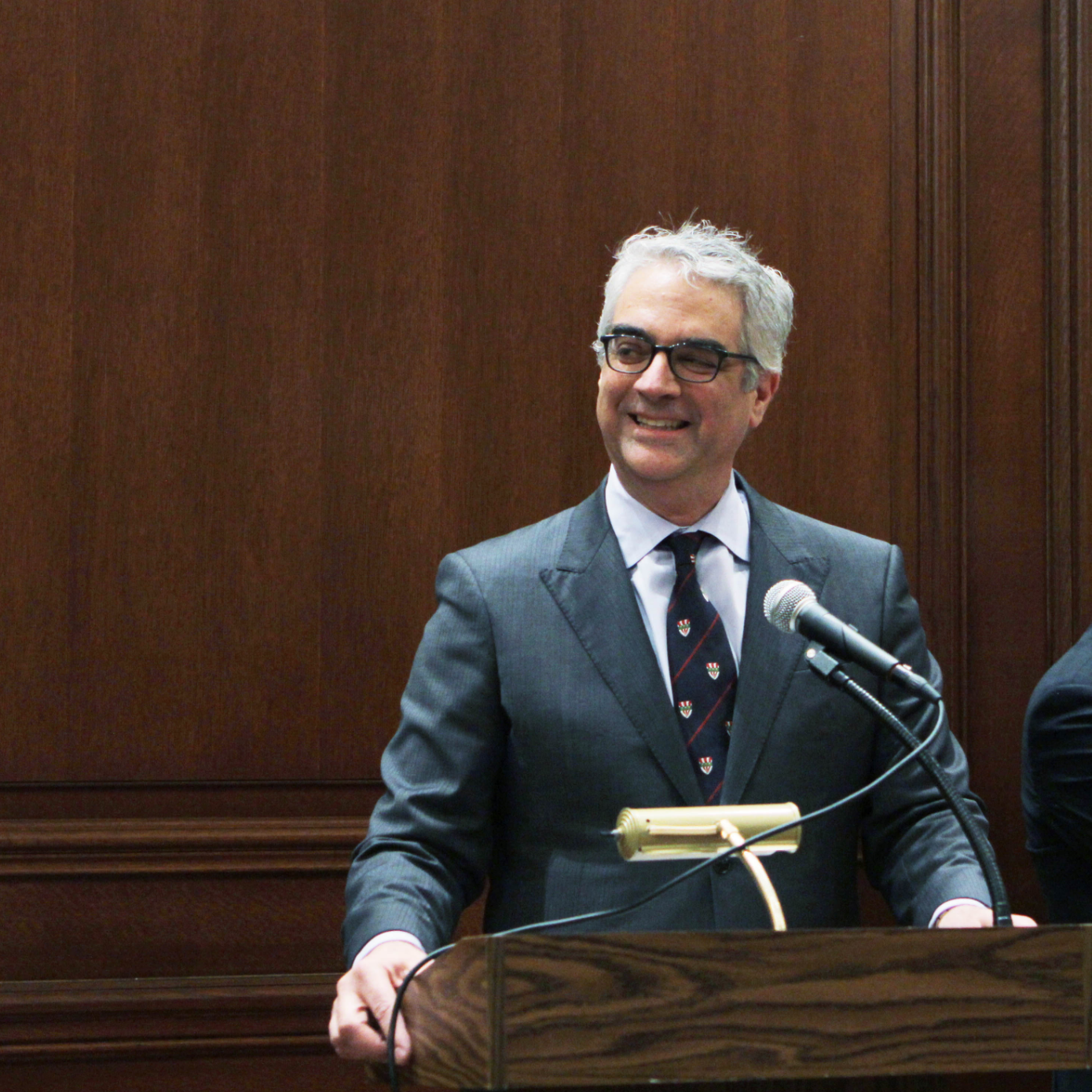
Nicholas Christakis ’84 — the Yale sociologist and physician who resigned his post as head of Silliman College after getting caught up in a firestorm of race-related controversy in the fall of 2015 — was one of four faculty members on Monday given the title of Sterling professor, the highest honor bestowed on Yale faculty.
The appointments, made by the University president and confirmed by the Yale Corporation, were announced last week in a Yale News article.
Though acclaimed in academic circles for his interdisciplinary research straddling the fields of network science, biosocial science and public health, Christakis has been a divisive figure at Yale since Halloween of 2015, when his wife, Erika Christakis, sent an email defending students’ right to wear “offensive” costumes. The email prompted widespread backlash on campus, and the couple fast became embroiled in a nationwide debate over questions of cultural appropriation and free speech.
With students and alumni demanding they step down from their posts at Silliman College, which they had held for just a year, the Christakises resigned at the end of the 2015–16 academic year.
Brea Baker ’16, who participated in the fall 2015 protests, said she was not surprised by Christakis’ appointment, since it falls in line with the Salovey administration’s habit of “sneak decision making and going against the will of the student body.” Still, she said, she was “shocked at the explicit cowardice” to announce the appointment, which she called “insult enough,” when students were away from campus on summer break.
“Yale sells a vision of intimate residential college system led by administrators tasked with our emotional and social health above anything,” Baker said. “Based on the original email, administrative responses and now this appointment, it seems that only students of color understand this. If Yale insists on selling this narrative, then those who don’t understand their obligations to the student body should be replaced.”
Christakis did not respond to a request for comment from the News.
Others on campus view Christakis as a crusader for free speech. Cameron Koffman ’19, president of the Buckley Program, who heard him speak at two different Buckley events on the importance of free speech, said he thought Christakis was a fantastic speaker and “that Yale was lucky to have someone like him on the faculty.”
Yale spokeswoman Karen Peart told the News that the University fully supports Christakis’ Sterling professorship and does not see it as a controversial issue. When asked whether the 2015 protests had any effect on the appointment, Peart stressed that Christakis’ new honor was the result of his body of academic work.
His research, which has appeared in more than 180 peer-reviewed professional journal articles and several books, includes large-scale randomized trials to improve maternal and child health in developing countries and science experiments exploring human social interactions, social genomics, the microbiome and artificial intelligence.
Christakis currently serves as director of the Human Nature Lab and co-director of the Yale Institute for Network Science, holding appointments in the Sociology, Biomedical Engineering, Ecology and Evolutionary Biology and Statistics and Data Science departments, as well as in the School of Medicine and the School of Management.
“Nicholas Christakis is a world-renowned scholar of social networks, and he has been an innovator in the intersection between the biological and social sciences,” said Grace Kao, sociology professor and chair of the sociology department. “I think it’s a great honor to have someone in our department be recognized by a Sterling Professorship.”
The other three faculty members honored with Sterling professorships were Molecular, Cellular and Developmental Biology professor Anna Marie Pyle, Computer Science professor Daniel Spielman and English professor Ruth Bernard Yeazell.Pyle is known for her research on RNA structure and protein enzymes’ RNA recognition, while Spielman’s focuses on the design and analysis of algorithms, network science, machine learning, digital communications and scientific computing. Yeazell’s academic work concentrates on the novel from the 18th to the 20th centuries, the history of gender and sexuality and the relationship between literature and the visual arts.
Hailey Fuchs contributed reporting.
Adelaide Feibel | adelaide.feibel@yale.edu







